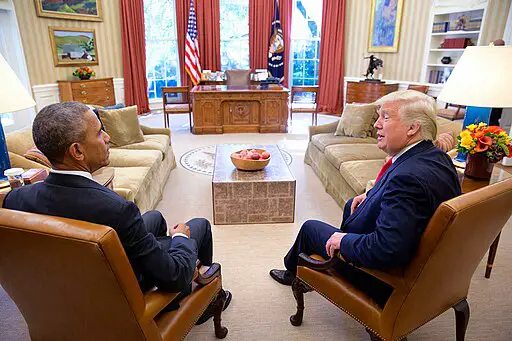Donald Trump now holds the position of the second-most popular U.S. president of the 21st century, according to a new survey conducted by Quantus Insights. The poll, which surveyed 1,000 registered voters between June 30 and July 2, shows former President Barack Obama still leading in overall favorability, with 47 percent naming him their top choice. Trump follows with 37 percent, ahead of George W. Bush at 12 percent and Joe Biden at just 4 percent.
Pollster Jason Corley explained that Trump’s strong ranking isn’t surprising, given his two election victories and unwavering support from key segments of his base. Trump’s favorability far surpasses his recent approval ratings, suggesting a divide between how voters view his legacy and their current opinions of his performance.
Corley noted that Trump’s political influence remains especially strong among rural voters, non-college-educated white voters, and older Americans. He compared Trump’s dominance within the Republican Party to Ronald Reagan’s popularity in the 1980s. While Obama maintains broader favor across a more diverse base—including women, Black voters, younger voters, and college graduates—Trump commands intense loyalty from his core supporters, particularly among men and seniors.
The data reveals Trump received 75 percent support among Republican voters as the most favorable 21st-century president. He also led among voters aged 65 and older, outperforming Obama by 14 percentage points in that demographic. Among white voters, opinions were nearly split, with 43 percent favoring Trump and 41 percent Obama. Among men, Trump came within three points of Obama, while the former president held a wide lead among women.
George W. Bush and Joe Biden lagged significantly behind, failing to capture strong support from any major voting bloc. Bush performed modestly among older and non-college voters, while Biden’s highest favorability came from independents, peaking at just 15 percent.
Beyond domestic rankings, Trump also appeared among the most popular global leaders in Morning Consult’s international poll, placing seventh—just behind leaders like India’s Narendra Modi and Canada’s Mark Carney but ahead of several European heads of state.
However, Trump’s current job approval numbers tell a different story. His approval has been consistently low in recent months, with the latest Quantus poll placing his net approval at -2. That dip was partly attributed to backlash over his economic policies, including controversial tariffs introduced as part of his “Liberation Day” initiative, and recent military actions in the Middle East. Protests in cities like Los Angeles have also sparked renewed criticism.
Despite these challenges, there are signs of stabilization. Some recent polls indicate a slight rebound in Trump’s approval. For instance, Navigator Research reported a two-point increase to 45 percent, while YouGov/Economist and Morning Consult polls also reflected modest gains.
Corley emphasized the importance of distinguishing between favorability and job performance. While approval ratings fluctuate in response to news and policy decisions, favorability is more deeply tied to long-term identity and ideological alignment. Trump’s support, Corley said, stems from a blend of political loyalty and shared grievance, a factor that continues to bolster his status despite fluctuating approval.
In broader terms, the survey also revealed a national sense of uncertainty. More respondents believe the country is on the wrong path than heading in the right direction, and a significant number think the nation’s best days are behind it. This pessimism is especially common among the very groups that have remained most loyal to Trump—older Americans and those in rural areas.


